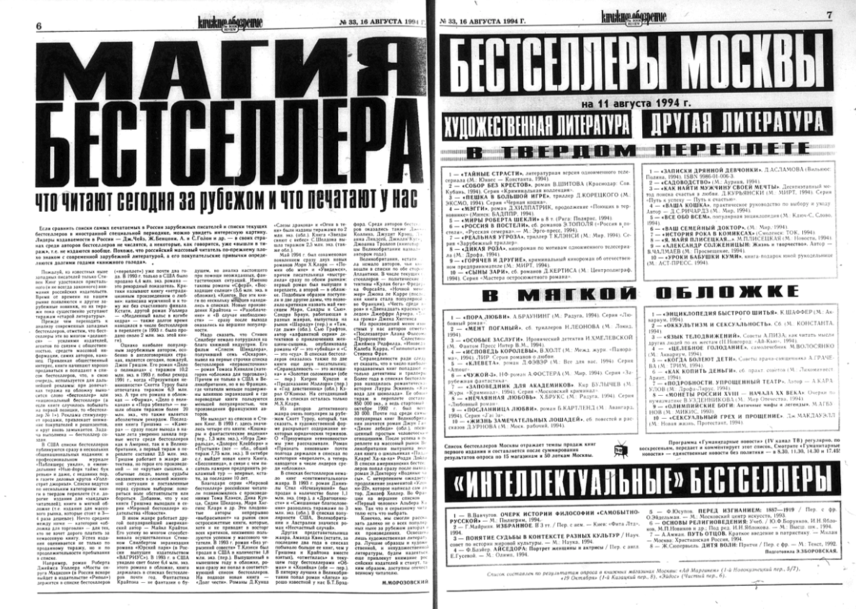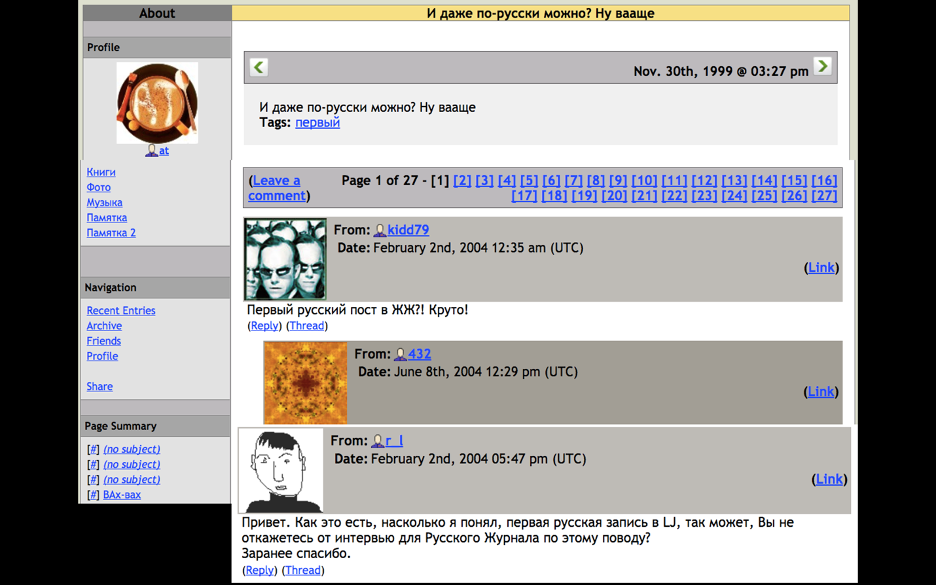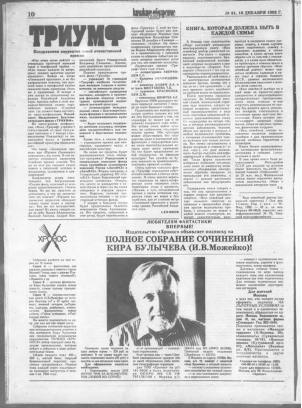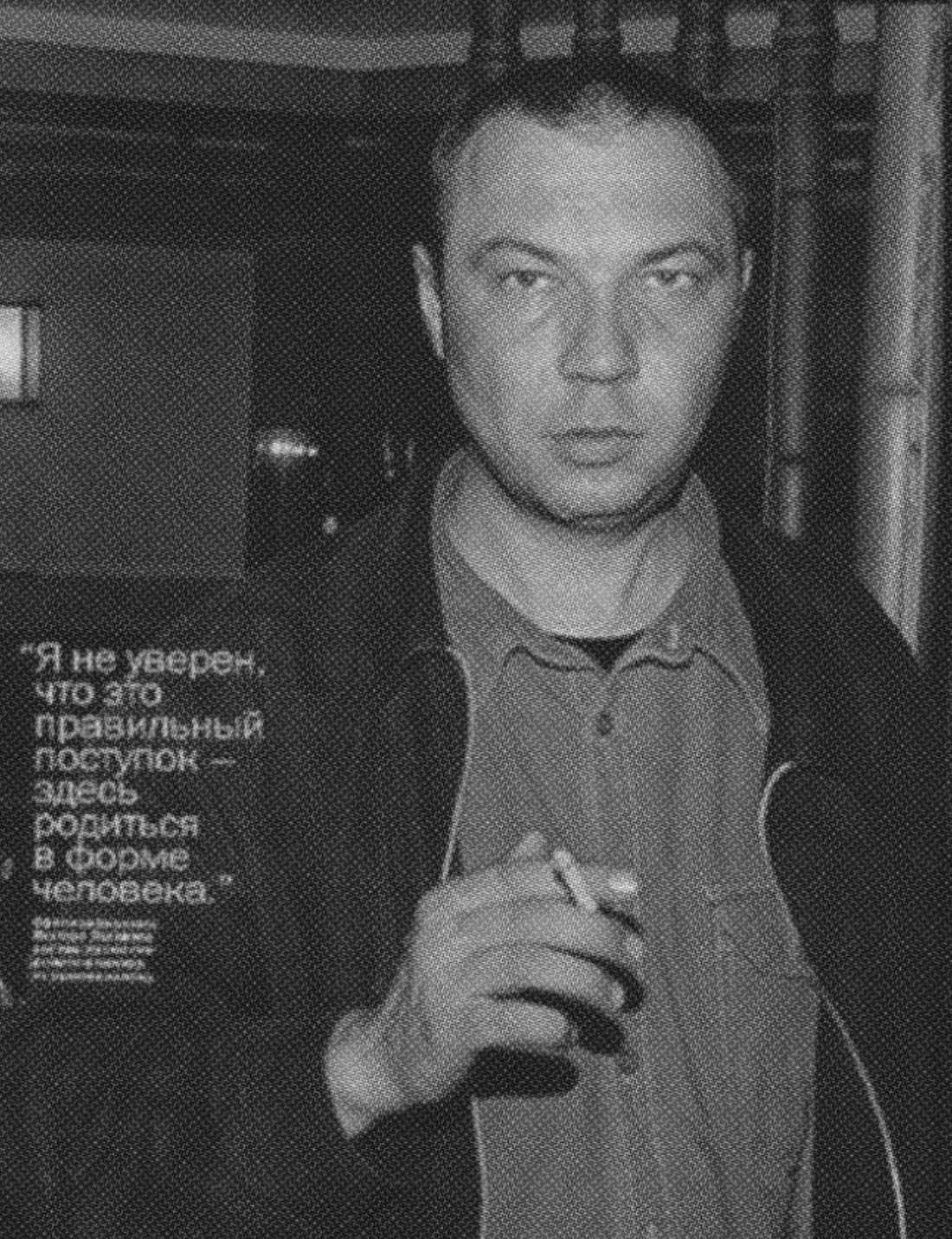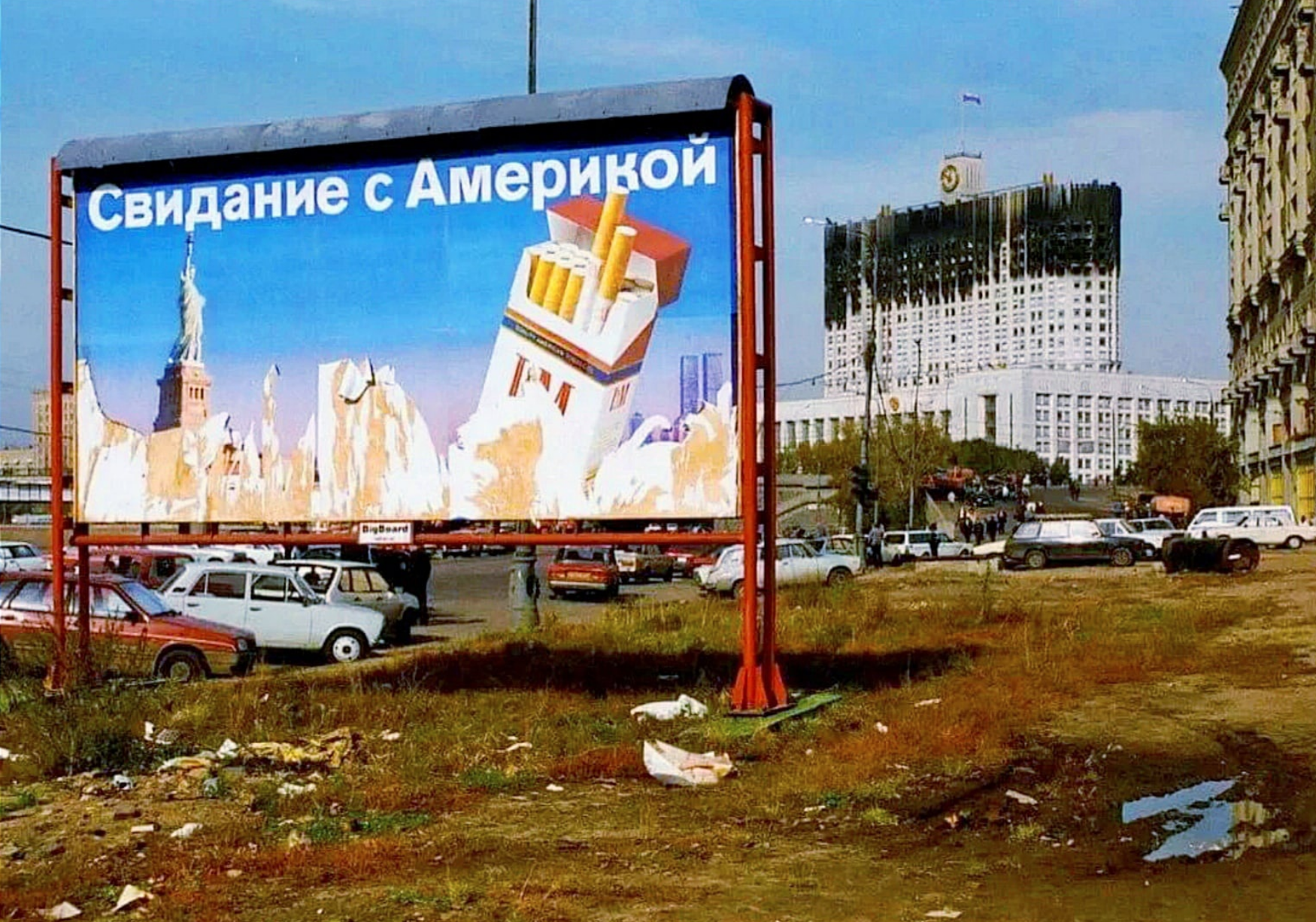Search Results
Search Terms
Results: Displaying Artifact 7 - 12 of 16 in total
Text Containing:
Page: 2
Thematic Tags: Literature
Bestsellers of Moscow
Post-Soviet Russia's first bestseller lists, compiled by the weekly industry newspaper "Knizhnoe obozrenie" and published from late 1993 through 1998.
First Russian-language LiveJournal Post
A post in 1999 demonstrates that LiveJournal processes Cyrillic encoding, sparking the Russian internet's most pervasive and influential early social media site. LiveJournal, soon known simply as ZhZh in Russian (for “Zhivoi zhurnal”), became a platform for poets, writers, political activists, essayists—and graphomaniacs. It launched or catalyzed several literary and political careers, and fed the budding market for conspiratorial thinking in late 1990s-era Russia.
The Triumph Prize
Launched at the same time as the Russian Booker and funded by the newly minted oligarch Boris Berezovsky (1946-2013), the Triumph Prize promised an even broader program of cultural guardianship and philanthropy.
Interview with Victor Pelevin
After the launch of Victor Pelevin’s hit novel “Generation P” in 1999, the author set out on a publicity tour in which he behaved as poorly as his own protagonist, Vavilen Tatarsky. And much like his protagonist, he proved that, in post-Soviet Russia, bad behavior sells.
Valery Pereleshin
A 1992 piece on the gay Russian émigré poet Valery Pereleshin (1913-1992), with excerpts from his verse cycle Ariel.
An Encounter with America
This billboard advertising the cigarette brand L&M is positioned in front of the burned façade of the Russian White House, which was bombed on Yeltsin’s orders during the 1993 Constitutional Crisis. It possibly inspired one of the most famous passages from Victor Pelevin’s iconic satire of the 1990s, “Generation P” (titled, in English, “Homo Zapiens”).
